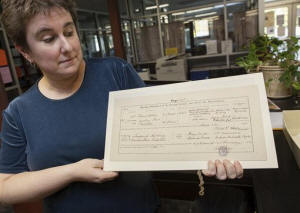 |
|
 US, UK Kipling scholars to visit author's Vt. home
US, UK Kipling scholars to visit author's Vt. home
[October 07, 2013]
MONTPELIER, Vt. (AP)
--
|
Kipling lived in Dummerston when he wrote "Rikki-Tikki-Tavi," the story of a mongoose that battled two vicious cobras in far-away India while protecting his human family from harm, said Thomas Pinney, who will give the keynote address Monday at Marlboro College. He lived there from 1892-1896, a time when there was rising anti-English sentiment in the United States. Over time, Kipling soured on the United States, although he continued to like many Americans, said Pinney, a retired professor from California's Pomona College. "So I thought what I would do, since Kipling told us so much about what he thought about Americans, I'd find out what the Americans thought about him, especially the locals in Vermont," Pinney said. "I thought I'd find a lot of hostile remarks, but it didn't work that way. It appears they liked him. They were sympathetic and flattered by the presence of a great man." Pinney will be among about 60 Kipling scholars from the United Kingdom and the U.S. who will meet at Marlboro College on Monday and Tuesday. They will view some of the college's Kipling holdings, including the contents of his safe deposit box discovered untouched in the early 1990s after almost a century in a Brattleboro bank. During Kipling's time in Vermont he also wrote the "The Jungle Books," "Captains Courageous," the poems of "The Seven Seas" and many of the stories in "The Day's Work" and "Many Inventions." Kipling was attracted to Vermont because of his American wife. Part of the draw for the scholars will be the Tuesday tour of Naulakha, the home he built in the shape of a ship, high on a hill overlooking the Connecticut River. |


